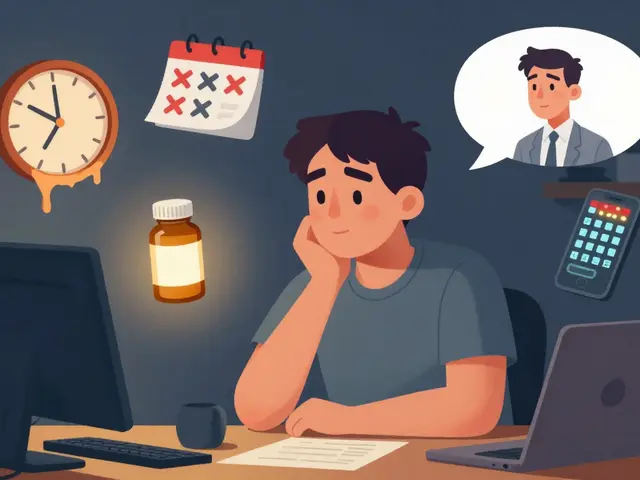Helicobacter pylori — what you need to know
Did you know around half the world carries Helicobacter pylori (H. pylori)? Most people never feel sick, but for some this little bacteria causes persistent stomach pain, ulcers, or long-term problems. If you've had recurring heartburn, bloating, or unexplained stomach pain, H. pylori could be the reason — and it’s treatable.
How H. pylori spreads and what it feels like
H. pylori usually passes between people through saliva or contaminated food and water. It’s more common in places with crowded living conditions or poor sanitation, but you can pick it up anywhere. Symptoms vary: some people only have mild discomfort, others get burning upper stomach pain, frequent burping, bloating, nausea, or loss of appetite. If you see blood in stool, vomit blood, or lose weight without trying, get medical help right away — those are red flags.
How H. pylori is diagnosed
Your doctor will pick a test based on your symptoms. The noninvasive options are a urea breath test or a stool antigen test — both tell if the bacteria are active now. Blood antibody tests can show past exposure but aren’t great for confirming current infection. If you have severe symptoms or doctors suspect ulcers, they may recommend an endoscopy to look inside your stomach and take a biopsy. Simple, accurate tests exist, so you don’t need to guess.
Treatment and practical tips
Treatment clears the infection in most people. Standard care mixes a stomach acid reducer (a PPI) with two or more antibiotics for a set course, usually about two weeks. Some cases need a different drug mix if resistance is suspected. Finish the full course — stopping early raises the chance of resistance and return of symptoms. Side effects like diarrhea or a metallic taste are common; probiotics can help with antibiotic-related diarrhea but check with your doctor first.
After treatment, your doctor will usually recommend a follow-up breath or stool test to confirm eradication. That test is typically done at least a few weeks after finishing treatment and after any acid medicines are stopped, so results aren’t skewed. If symptoms come back, talk to your provider about a different antibiotic plan.
Want to lower the chance of catching or spreading H. pylori? Wash hands well, drink safe water, and avoid sharing eating utensils in high-risk settings. If someone in your household has confirmed infection, family members may be tested, especially if they have symptoms.
If you’ve been dealing with ongoing stomach trouble, ask your doctor about H. pylori testing. It’s a common, solvable cause of chronic stomach pain and ulcers — and knowing is the first step to feeling better.





